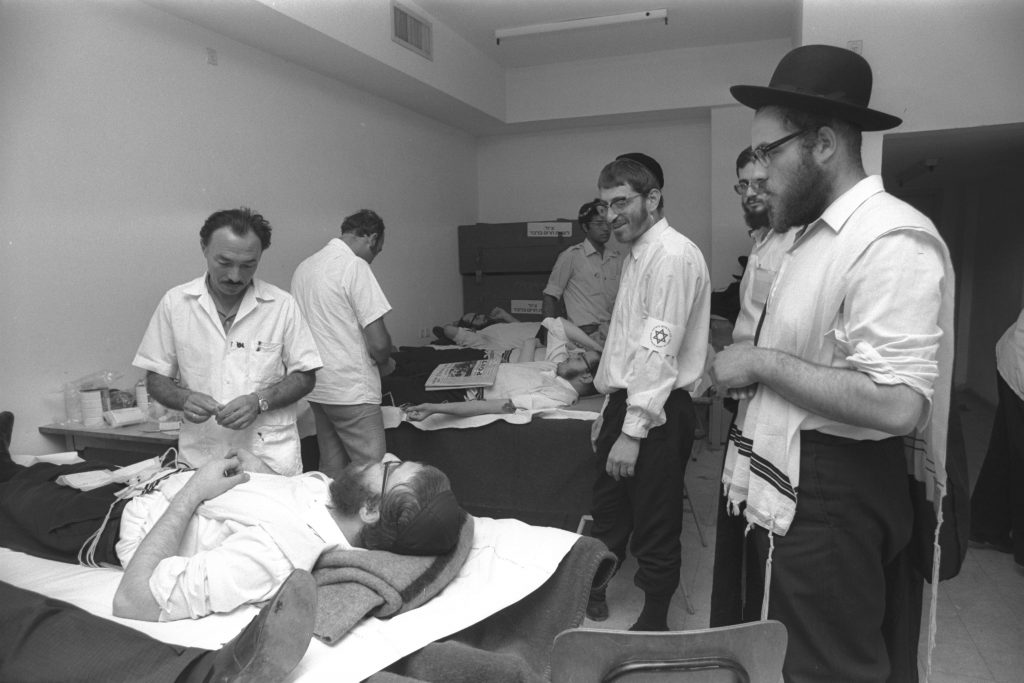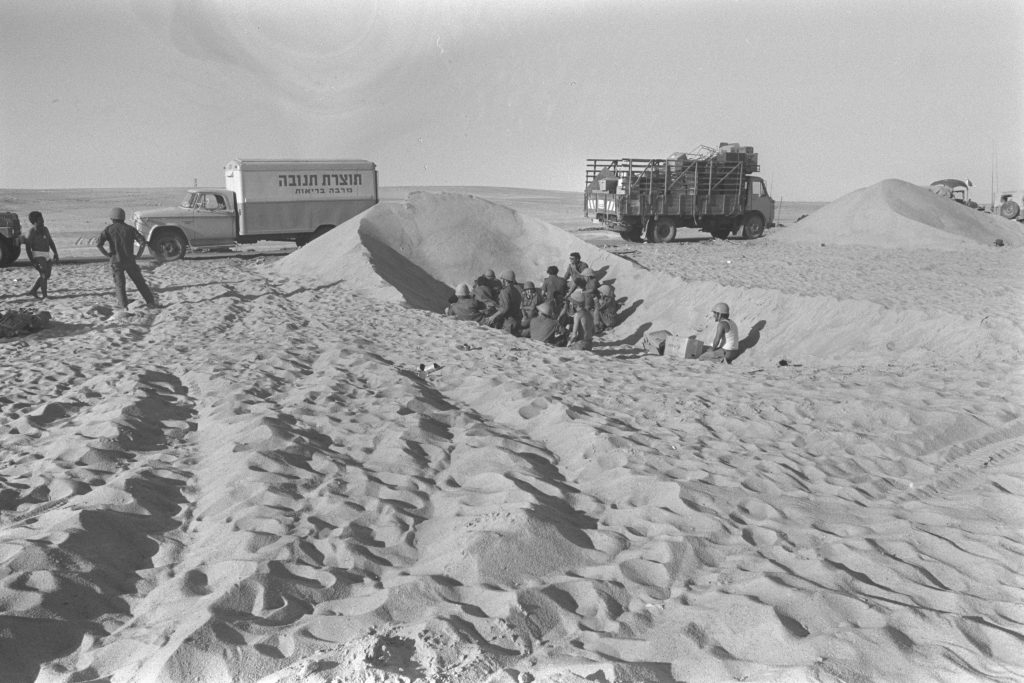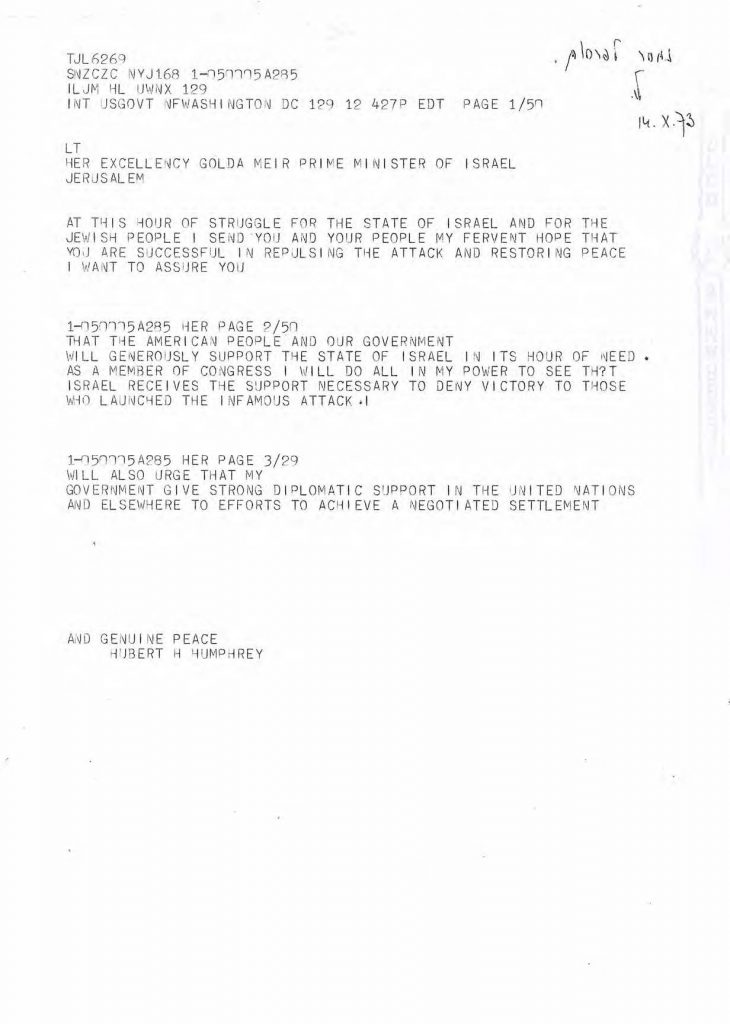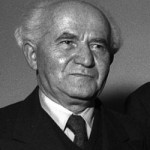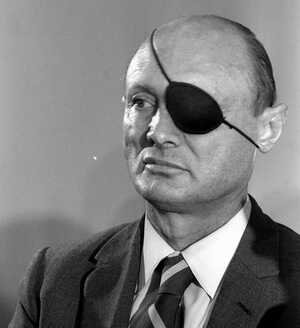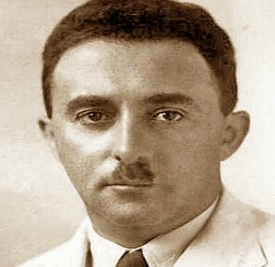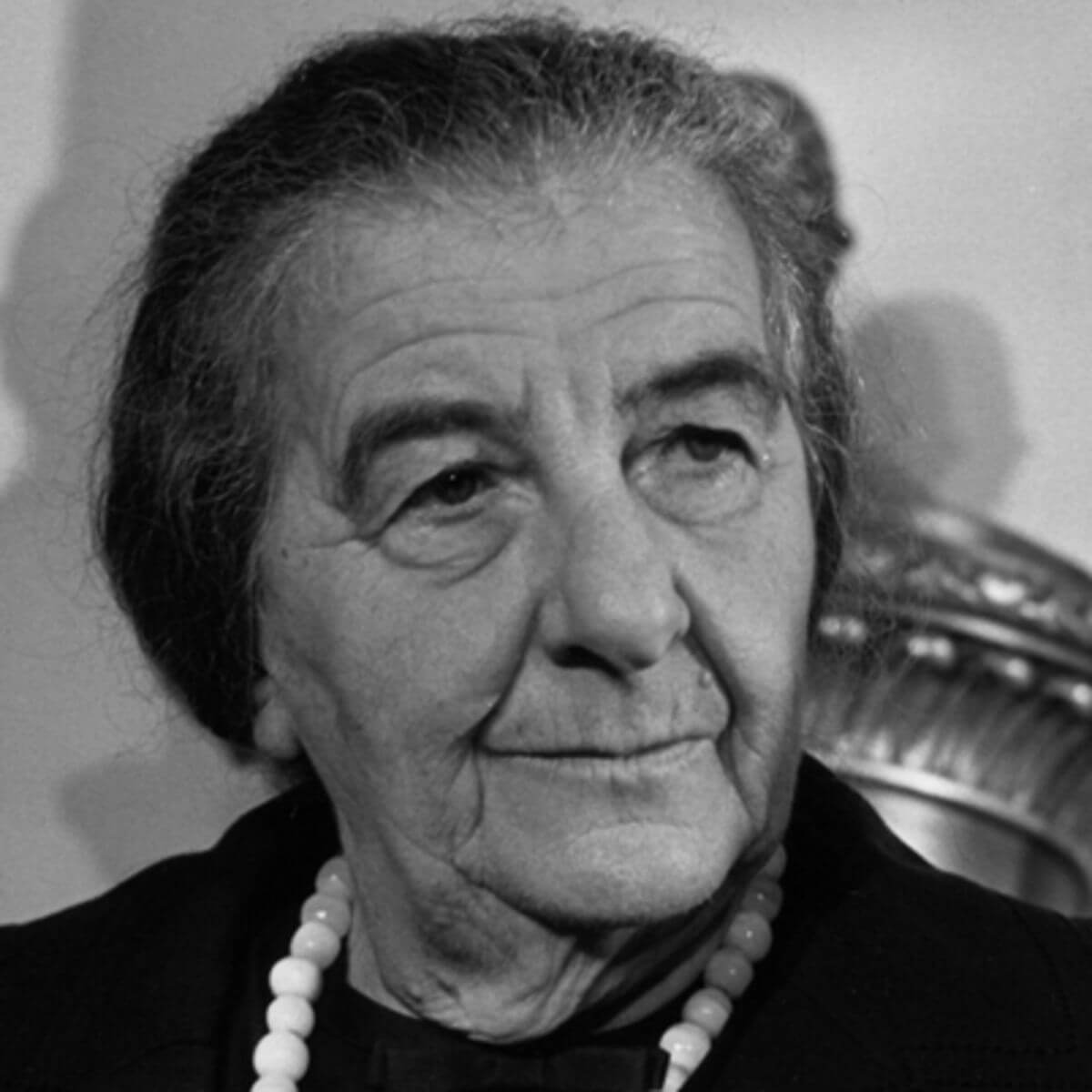.1 | Saturday, 13 October – The American Airlift Begins
Many of the central figures in the drama of October 1973 regarded 13-14 October as the turning point in the war. That morning, decision-makers in Israel were in a difficult position. The promised US arms supply was not forthcoming, the situation on the fronts, especially in the south, was not promising and the possibility hung over their heads of a ceasefire imposed by the Security Council that would perpetuate the situation, with Egyptian forces deployed along the entire length of the eastern bank of the Suez Canal. However, by the end of Sunday, 14 October, things had changed completely – the American airlift was on its way, the ceasefire initiative failed due to Egyptian opposition (and further activity on the subject was frozen till 16 October); and on the southern front Israel’s military possibilities were more promising.
From this time on until 20 October the war cabinet no longer held regular ongoing meetings. The management of the war was mainly carried out by Prime Minister Meir herself, with the help of Galili, in consultation – when needed – with other cabinet members and with the COGS and the top ranks of the army. Contact with the embassy in Washington and transmission of messages to Kissinger was also improved, with the installment of an upgraded communications line in the prime minister’s bureau. Government meetings were no longer held every day, and on 13 October too, there was no meeting. However, in the bureau the intense activity continued as usual, and the main part of the documentation for this day is found in the bureau journal.
In the morning Golda, Dayan, Galili and Allon discussed the continuation of the war. The delay in the anticipated Egyptian offensive (which did not take place until 14 October) caused them to reconsider the IDF’s strategy. Dayan proposed instructing Southern Command to plan an attack across the Suez Canal within 48 hours at most – whether the Egyptians attacked or not – and to bring the decision to cross the Canal to the government for approval. However, after bitter experience, he understood that in view of the realisation that the Egyptian army’s fighting capabilities were far better than previously thought, this plan was a dangerous gamble. He therefore emphasized that he was proposing it although such an attack might cause heavy losses. If it failed, it might lead to an Israeli retreat deep into Sinai, and the loss of the important bases at Umm Hashiba and Refidim (Bir Gafgafa). Golda and Galili accepted his opinion, because of the need to improve Israel’s position before the debate on the ceasefire in the Security Council. Allon disagreed, and said that he wanted to see the plans before he would support it, because if failed, there might be serious consequences and “between us and the very existence of the Israeli nation stand only 200 tanks”. Another issue discussed was the problematic relationships between the officers on the southern front; especially the behavior of the commander of 143rd Division, Maj. General Arik Sharon. Dayan said that Sharon had proposed that he appoint himself the head of Southern Command instead of Gorodish (Gonen). Dayan believed that no changes should be made, and said: “He has a mouth on him, but he’s an excellent officer… We’ll have to live with his [Sharon’s] mouth. We’ll live with it, and let the Egyptians live with his hand [fist]”.
Later the deputy COGS reported on the situation. In the north it was relatively good, and the IDF was bombarding the Damascus suburbs, which caused Golda to say: “We want there to be a state of nerves and uncertainty among them… Let the Arabs think that perhaps we will go into (Damascus). Let them hear the artillery, but civilians should not be injured”. In the south, additional Egyptian armoured forces seemed to be crossing of the Canal, perhaps in preparation for the beginning of their attack into Sinai.
Other issues discussed included postponing the elections for the Knesset, which were scheduled for 30 October and the possibility of a Security Council meeting. Although the soldiers were exhausted and were waiting for a ceasefire, now that it seemed that the US airlift was about to begin, Golda took a hard-line position, and declared: “Heaven forbid that we appear to be begging for a ceasefire”. They also discussed the number of casualties; the process of informing their families was to begin the next day (For the full entry for that day, see: the Prime Minister’s Bureau Journal, 13.10.73).
The second focus of activity was contacts with Dinitz in Washington to solve the problem of arms supplies. In the morning Dinitiz and Shalev reported on the tense atmosphere in the urgent talks they had the previous night with Kissinger and Secretary of Defense James Schlesinger, and the meeting between Eban (who had arrived in Washington) and Kissinger. The Israeli representatives accused the US of not keeping its promises, and said that their approach was directly affecting the military situation. They were met with counter-accusations by Kissinger that Israel was not attacking enough, and was not living up to US expectations. Dinitz described his meeting with Schlesinger, on the background of what seemed to be deliberate delay by the Pentagon, orchestrated by Deputy Secretary Clements, in supplying the promised arms, despite an express order to do so by Nixon, as “the most unpleasant I have ever attended”. He even considered walking out. Kissinger promised to intervene and to ensure that the president’s instructions were carried out (See: Telegrams Nos. LV/87, 89, 100).
By now the Americans had already reached the conclusion that the war was not going to be over quickly, as expected, that a ceasefire would not be achieved soon and that in view of the massive Soviet arms supply, the US could not stand aside. Reports from their embassy in Tel Aviv confirmed Israel’s claims about the dire state of the army, due to the shortage of arms and ammunition. The US understood that without an improvement in Israel’s military situation, no ceasefire would be achieved, still less diplomatic negotiations. Global interests therefore obliged it to strengthen Israel militarily for the coming battles, as Eban later explained (See below: Government meeting, 20 October).
Kissinger claimed that the main reason for beginning the airlift on 13 October was the American understanding that a ceasefire could not be reached by diplomatic means. The war would end when the Arabs realized that a decision could not be reached on the battle field. Despite the belief that the Israeli description of the shortage of arms and ammunition was exaggerated and was intended to force the Americans into a massive arms supply; Kissinger began intensive and sometimes forceful activity to expedite the airlift, combined with Nixon’s direct and determined intervention. In a meeting between the military attaché, Gur, and Schlesinger, the latter declared that the airlift would begin that same day, and that the supply of Phantoms would be accelerated. “Our feeling is that in the future as well, the Defense Department will only act in our favour under orders from the top”, wrote Gur (See: Telegram No. LV/93).
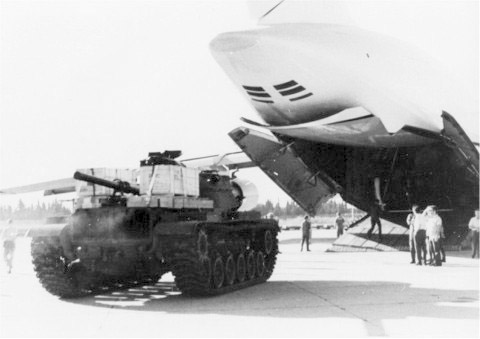
The airlift was known as “Operation Nickel Grass”: here a M-60 tank is unloaded from a US Galaxy plane in Israel, 1973. Photograph: Wikimedia, US Air Force
At 16:00 Dinitz reported that the airlift had started, with huge transport planes that would soon bring to Israel all the military equipment it had requested. “Some of the planes are already in the air; the rest will leave during the day”, wrote Dinitz. His telegram elicited sighs of profound relief in the bureau (See: Telegram No. LV/101). Later that day Kissinger and Schlesinger decided to fly the entire military supply in American planes directly to Israel. On the other side, the dimensions of the Soviet supply on 13 October reached 2,100 tons, which were transported in over 100 flights by cargo planes. From then on, a new stage in the war began, and the two super powers were involved in the conflict, competing through their airlifts.
On the diplomatic front, Kissinger had already devised a timetable for a resolution on a ceasefire to be proposed by Britain at the Security Council. However, in a talk with Eban, the secretary accepted Israel’s position, and said that despite his wish for a ceasefire, there was no sign of any desire on the part of the Arabs for such a resolution, and moves at the Security Council were proceeding very slowly. (See: Telegram No. 892/LV). In view of Egypt’s opposition, Britain retreated from its intention to raise it together with the Americans (See: Gazit’s summary on Israel’s and the super powers’ positions in negotiations to induce the Security Council to pass a ceasefire resolution, 6.10.73 – 22.10.73, File A 7023/1).

